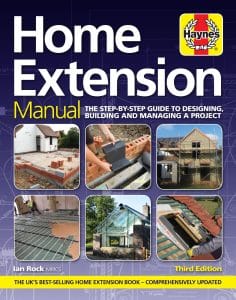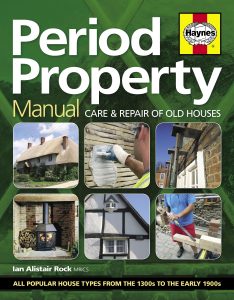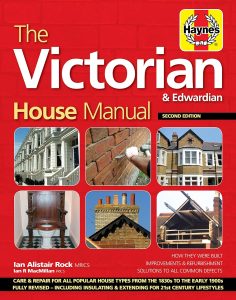Property Tips by Chartered Surveyor Ian Rock FRICS – from the Haynes House Manual series
What exactly is a ‘Survey’?
The vast majority of people buying homes need to fund their purchase with a mortgage (plus a small cash deposit, usually at least 10% of the value).
But the Banks and Building Societies that lend you the money need to be sure the property you want to buy is actually worth the money you’ve agreed to pay. They will sleep easier at night knowing that they would get their money back if they had to repossess your home (ie their security).
So before handing over truck loads of cash, the mortgage lender will normally instruct a qualified RICS chartered surveyor to conduct an independed valuation.
The reason they don’t just ask the estate agent is of course that the agent is acting on behalf of the people selling the property. So there’d be a rather obvious conflict of interest. Plus agents aren’t necessarily qualified in valuation and don’t usually have the required Professional Indemnity Insurance (so the instructing mortgage lender can seek legal redress and sue valuers if they prove to be negligent)
No wonder people are confused – mortgage valuations are sometimes referred to as ‘surveys’
So for most purchases a qualified surveyor is instructed by the lender to briefly inspect the property.
In some cases, where the amount of money being borrowed is very low in relation to the property’s value, and there’s good ‘desk’ evidence of the property’s value (such as a recent sale) banks may only instruct a more limited valuation (see below).
But where mortgage valuations are carried out by chartered surveyors (ie for most mortgage funded purchases), they will complete a simple mortgage valuation form which will provide an independent opinion of the property’s market value.
This figure will often, but not always, concur with the agreed purchase price. To pay for this, lenders usually charge the applicant a valuation fee (not all of which is passed to the surveying firm doing the job).
Most lenders send the buyer a courtesy copy of their valuation report, and this is where confusion sometimes arises, because buyers may assume that a proper survey has been done. Part of the problem is that staff in banks routinely refer to mortgage valuation inspections as ‘surveys’.
But valuation reports are nothing like a genuine survey. Many simply use catch-all phrases like:
‘The property appeared in a general condition consistent with its age and type although parts of the property are ageing and likely to require attention.’
Which tells you virtually nothing – except there are likely to be problems with the place you’re buying that they’re not prepared to specify!
To qualify for a mention in valuation reports, defects usually have to be quite extreme as well as blindingly obvious. But even this very limited ‘safety net’ (that’s full of holes) may soon be an item of scarcity. Ever keen to find ways of boosting their profits, many banks are instead instructing external ‘drive-by’ valuations, which at best are an educated guess.
Worse, some lenders are relying on computer-generated valuations known as ‘AVMs’ (Automatic Valuation Models), a recent US import implicated as being open to manipulation, and fuelling the sub-prime lending crisis.
So it’s increasingly likely that no qualified surveyor will be setting foot in the house that you’re buying unless you instruct one yourself. However, the property in question will most likely have already received the attentions of a Domestic Energy Assessor for the purpose of producing an Energy Performance Certificate.
So never mind if the property is visibly subsiding and riddled with rot and beetle, at least you’ll know its carbon footprint. Instructing a private survey is therefore becoming more important. Although money will inevitably be tight, the justification for spending a few hundred quid on a survey is that it could well save you thousands later.
Any significant defects that come to light can provide useful ammunition to renegotiate the price, or have the sellers pay for any urgent works that would otherwise have been down to you.
See Rightsurvey.co.uk for a quick guide to survey prices
Check out our other posts for more info that will help you pay the right price for the right property.
We would always recommend using RICS certified surveyors in every instance – don’t get caught out, get instant quotes for RICS surveyors here.
Ian Rock’s Rightsurvey property tips are taken from the Haynes House Manual series.







